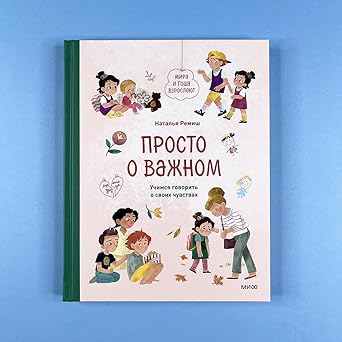Манн, Иванов и Фербер
Just the important stuff. Mira and Gosha are growing up. Learning to talk about our feelings.
Just the important stuff. Mira and Gosha are growing up. Learning to talk about our feelings.
Couldn't load pickup availability
Why is it so hard to protect ourselves? What should we do if our best friend distances us? Why is it so hard to ask for forgiveness? Why share our feelings? How can we refuse to do something we don't want to do? And why is it so important to learn to say "no"?
Mira and Gosha ask these and many other questions not only of adults but also of themselves and their friends. Children grow up and increasingly face situations where they need to stand up for themselves and apologize if they've made a mistake. Natalia Remish shared stories familiar to any family. Each story ends with questions to discuss with your child and a psychologist's commentary that will guide parents on the right course of action. You'll be able to support your child and teach them to better understand themselves and others. And they'll feel loved, valued, and heard.
For children aged 6 and over and parents who want to better understand their child and accept them as they are.
Share


